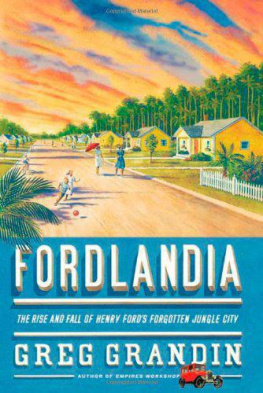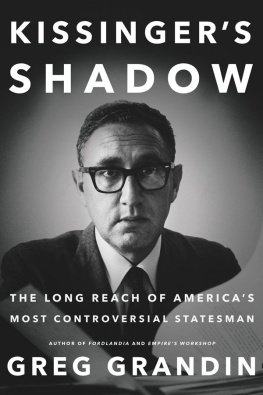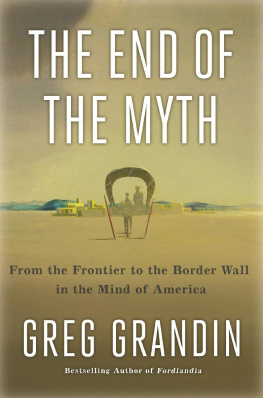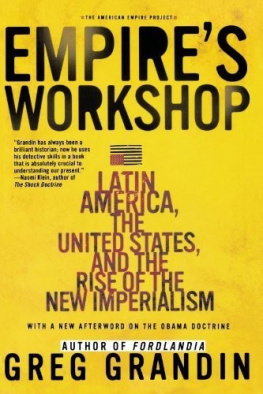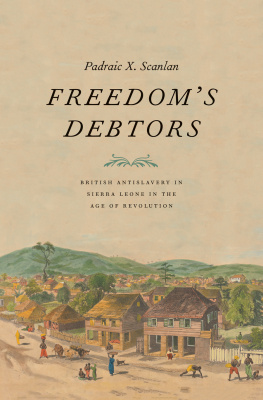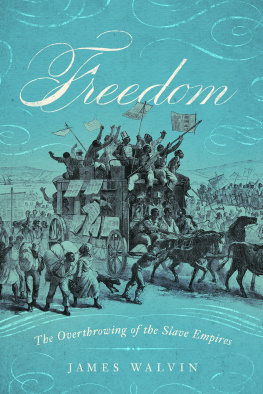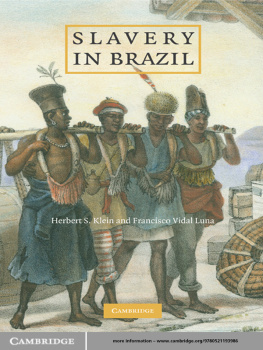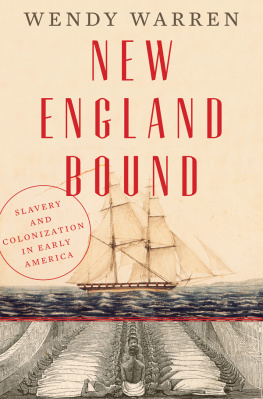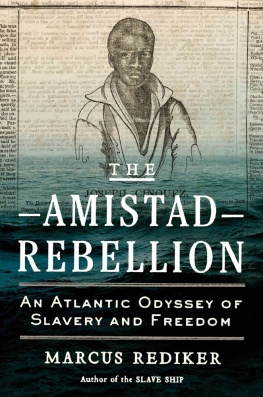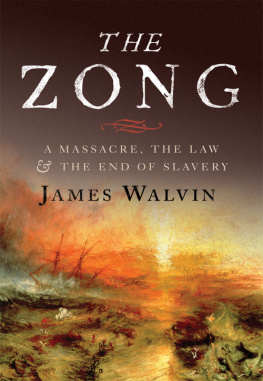
The author and publisher have provided this e-book to you for your personal use only. You may not make this e-book publicly available in any way. Copyright infringement is against the law. If you believe the copy of this e-book you are reading infringes on the authors copyright, please notify the publisher at: us.macmillanusa.com/piracy .
For Eleanor
ACKNOWLEDGMENTS
In the early 1920s, the British war journalist and novelist H. M. Tomlinson let Americans in on a secret. There existed an obscure book that certain people used as an artful test to identify like-minded souls. If they gave it to you to read, Tomlinson wrote in the Christian Science Monitor , and you showed no surprise, youd be deemed no good. But, being that they were half afraid of the intensity of their own conviction, they wouldnt tell you you were no good. Theyd keep quiet. If, however, Herman Melvilles Moby-Dick possessed you, you would have proved yourself worthy, able to dwell in safety with fiends or angels and rest poised with a quiet mind between the stars and the bottomless pit. Ninety years later, I felt that I had my own password into a knowing world of fiends and angels. When asked what I was working on, Id say I was researching events that inspired a Herman Melville story. Not Moby-Dick , Id say, another one. Less than half had heard of Benito Cereno and fewer still had read it. Those who had, though, knew it was different. It was Corey Robin who first let me in on the secret and I owe the idea of this book to him.
Over the years, Ive kept a running list of people who helped in large and small ways move this work along, and if Ive left anyone out, I apologize. Though I cite their scholarship throughout, special credit is due to the historians Alex Borucki and Lyman Johnson. They have been extremely generous taking time to respond to my questions and read the manuscript. I also want to thank the friends and colleagues, at NYU and elsewhere, who listened, suggested, corrected, and indulged, including Barbara Weinstein, Ada Ferrer, Sinclair Thomson, Michael Ralph, Gary Wilder, Laurent Dubois, Donna Murch, Chuck Walker, Mark Healey, Karen Spalding, Gerardo Rnique, Jennifer Adair, Debbie Poole, Kristin Ross, Harry Harootunian, Eric Foner, Emilia da Costa, Ned Sublette, Constance Ash-Sublette, Walter Johnson, Fred Cooper, Ernesto Semn, Bob Wheeler, Julio Pinto, Peter Winn, Gil Joseph, Stuart Schwartz, Tom Bender, Matt Hausmann, Amy Hausmann, Robert Perkinson, Christian Parenti, Laura Brahm, Jack Wilson, Gordon Lafer, Josh Frens-String, Christy Thornton , Aldo Marchesi, Ervand Abrahamian, Carlota McAllister, Marilyn Young, Deborah Levenson, Liz Oglesby, Molly Nolan, Lauren Benton, Cristina Mazzeo de Viv, Henry Hughes, Jorge Ortiz-Sotelo, and Chris Maxworthy. Jean Stein graciously read the manuscript and offered constant encouragement. Eleanor Roosevelt Seagraves kindly took the time to discuss Delanos memoir. Susan Rabiner has helped guide the work along since the beginning. In the middle of the project, between the archival research and the writing, I fell into a Melville obsession, from the depths of which one thing kept me going: knowing that Richard Kim would understand.
Many, many people assisted in the research of this book, including Roberto Pizarro, Seth Palmer, Liz Fink, Kyle Francis, Matthew Hovious, Flor Maribet Pantoja Diaz, Emiliano Andrs Mussi, Yobani Gonzales Jauregui, Andrs Azpiroz, Christy Mobley, and Adam Rathge. Rachel Nolan put her many skills, including an unanticipated knowledge of Catholic saints, to proofreading and fact-checking. In Mendoza, Luis Csar Caballeros conducted key research and Diego Escolar was a gracious host. Boubacar Barry helped me speculate about the origins of the names of the Tryal rebels; Al Cave passed on information about the Pequot War; Clifford Ross allowed me to look at one of Melvilles family Bibles; at the NYPL, David Rosado facilitated the reproduction of a number of illustrations and Jessica Pigza put together a list of extant first editions of Delanos memoir; BJ Gooch, the archivist at Transylvania University Library, confirmed that Horace Holley was indeed the author of Amasa Delanos biographical sketch; Michael Dyer, at the New Bedford Whaling Museum, identified illustrations; Jennifer Lofkrantz cleared up certain points of Islamic law; in Concepcin, Alejandro Mihovilovich Gratz shared his deep knowledge of the regions history, as did Manuel Loyola and Magdelana Varas, members of a dance and theater troupe, Teatro del Orculo, dedicated to the recuperation of popular, or peoples history: after happening on a reference to the 1805 execution of Mori and the other West Africans, they began to research the events of the Tryal , staging, in 2006, La Laguna de los Negros . Information on this and other productions can be found on the groups website: http://www.teatrodeloraculo.cl/. Elizabeth Bouvier, head of the archives of the Massachusetts Supreme Court, passed on and helped interpret documents related to Amasa Delanos various debt cases; Ron Brown, at the New York University School of Law Library, compiled a list of legal cases that cited Hall et al. v. Gardner et al . Id also like to thank Ibrahama Thioub and Ibra Sene for sharing their knowledge of Dakars archives with me.
Carolyn Ravenscroft, the archivist at the Duxbury Rural and Historical Society, deserves special mention. Carolyn was with this project from nearly its beginning and though there are only so many times one can use the word generous in acknowledgments, that she was, and more so. Hershel Parker was once kind enough to respond to an unsolicited e-mail inquiry and I hope he doesnt regret it! Ever since, he has been exceptionally charitable in answering questions and sharing his unmatched knowledge of Herman Melvilles life and work.
I was privileged to be able to finish a final draft of the manuscript while a Gilder Lehrman Fellow in American History at the New York Public Librarys Cullman Center for Scholars and Writers. As if time to write and access to the librarys collections werent benefit enough, the year also allowed the rare opportunity to discuss all sorts of things with the wonderful people who keep the Center and Library running, especially Jean Strouse, Marie dOrginy, Paul Delaverdac, Caitlin Kean, and Maira Liriano, and a terrific cohort of fellow fellows: Mae Ngai, Betsy Blackmar, Philip Gourevitch, Said Sayrafiezadeh, Valentina Izmirlieva, Gary Panter, Jamie Ryerson, John Wray, Luc Sante, Shimon Dotan, Katie Morgan, Tony Gottlieb, Ruth Franklin, and Daniel Margocsy.
I owe an enormous debt of gratitude to all the people at Metropolitan Books, including Rick Pracher, and Kelly Too but especially Riva Hocherman and Connor Guy. They helped in more ways than can be counted here. Again, it has been a pleasure to work with Roslyn Schloss. And Sara Bershtel: whenever Im asked to compare the differences between having a manuscript reviewed by a university publisher and having one reviewed by a trade press, my thoughts revert to Sara. Theres no comparison. She brings a formidable commitment, precision, and intelligence to thinking about the content and form of a book, beginning with the first conversation and not ending until the acknowledgments are being written. Im lucky to have her as an editor and even more so as a friend. Thank you.
In the past, Ive thanked Tannia Goswami, Toshi Goswami, and, of course, Manu Goswami. I get to again, but this time also Eleanor Goswami Grandin, born on, depending on what calendar one is using, either the 20th of Rabi-al-thani 1435 or the 23rd of Ventse 220, but in any case starting the world anew.
CONTENTS
Seeking to conquer a larger liberty, man but extends the empire of necessity.
Next page

